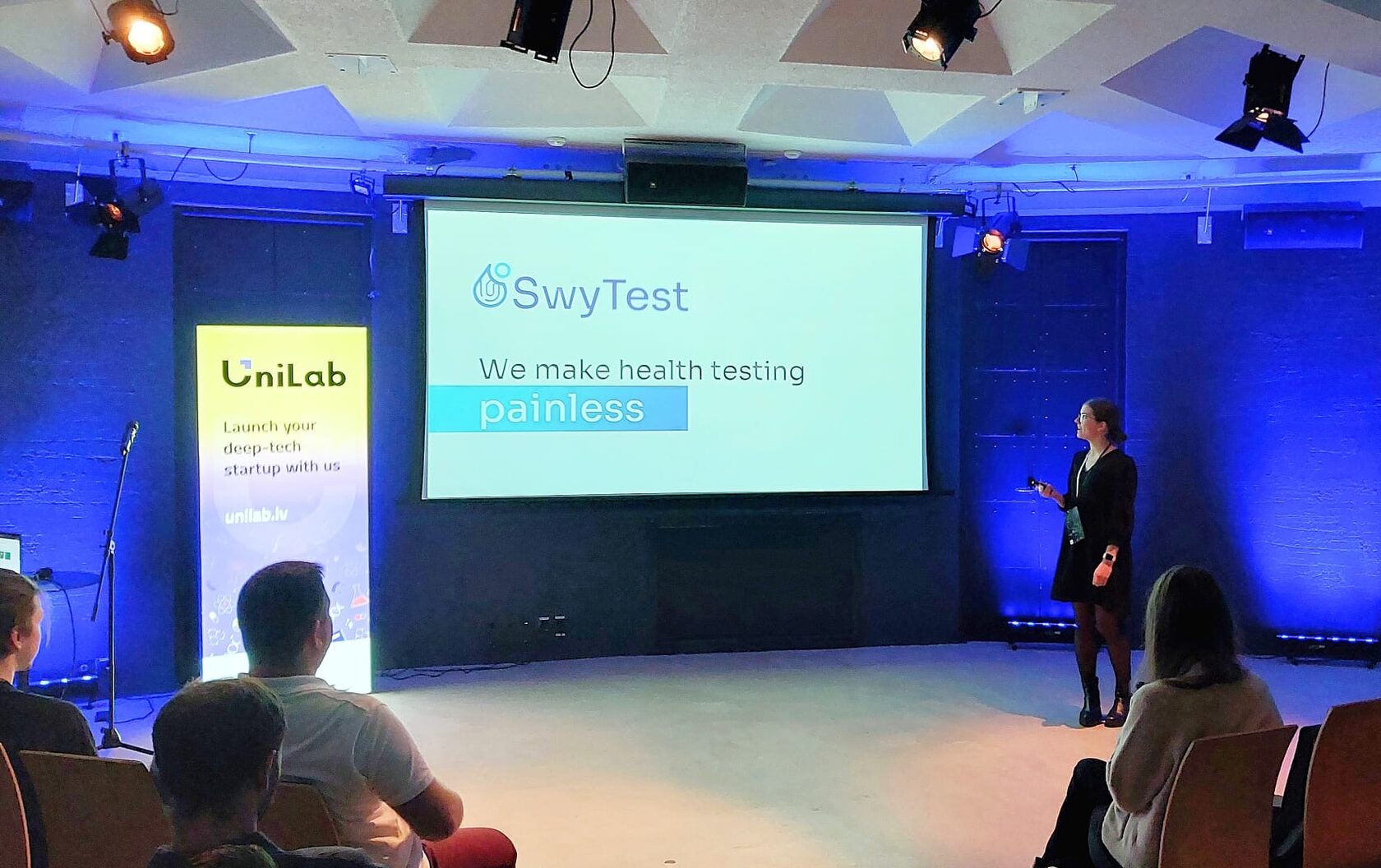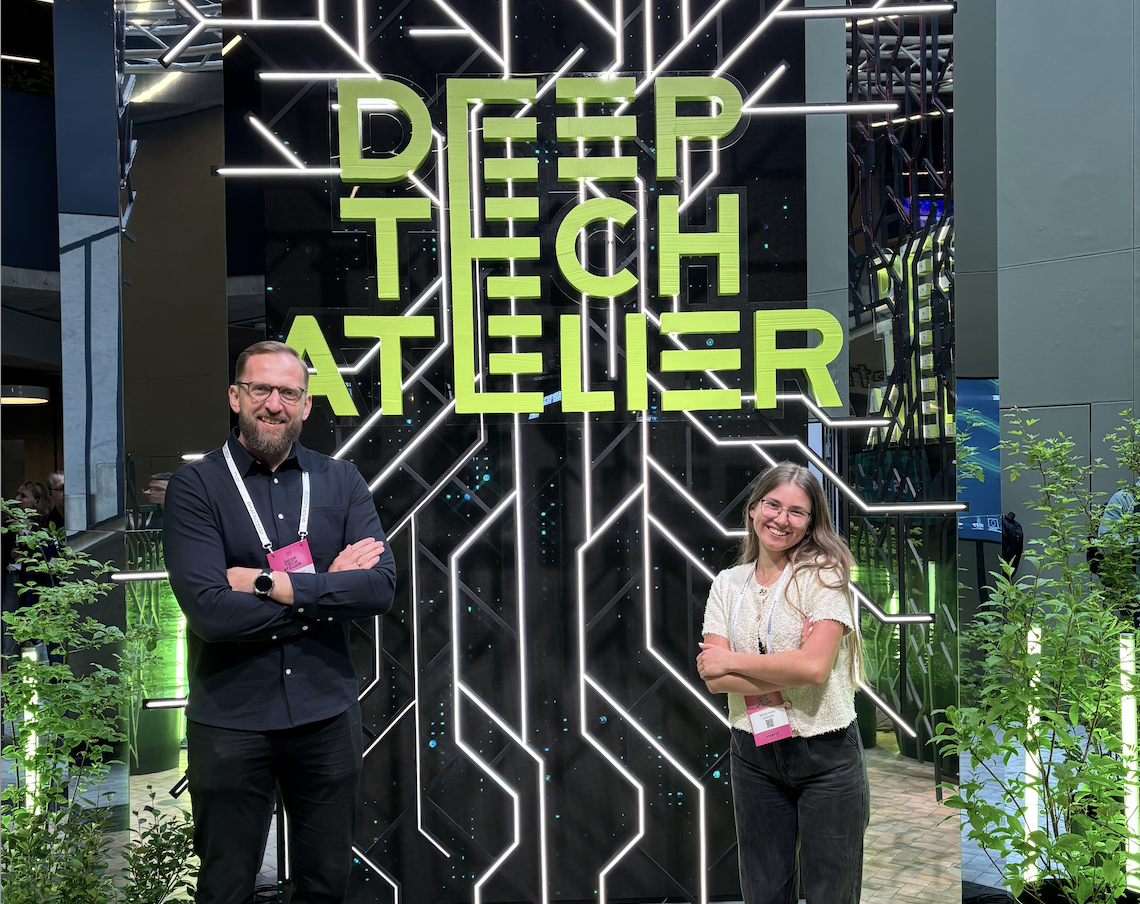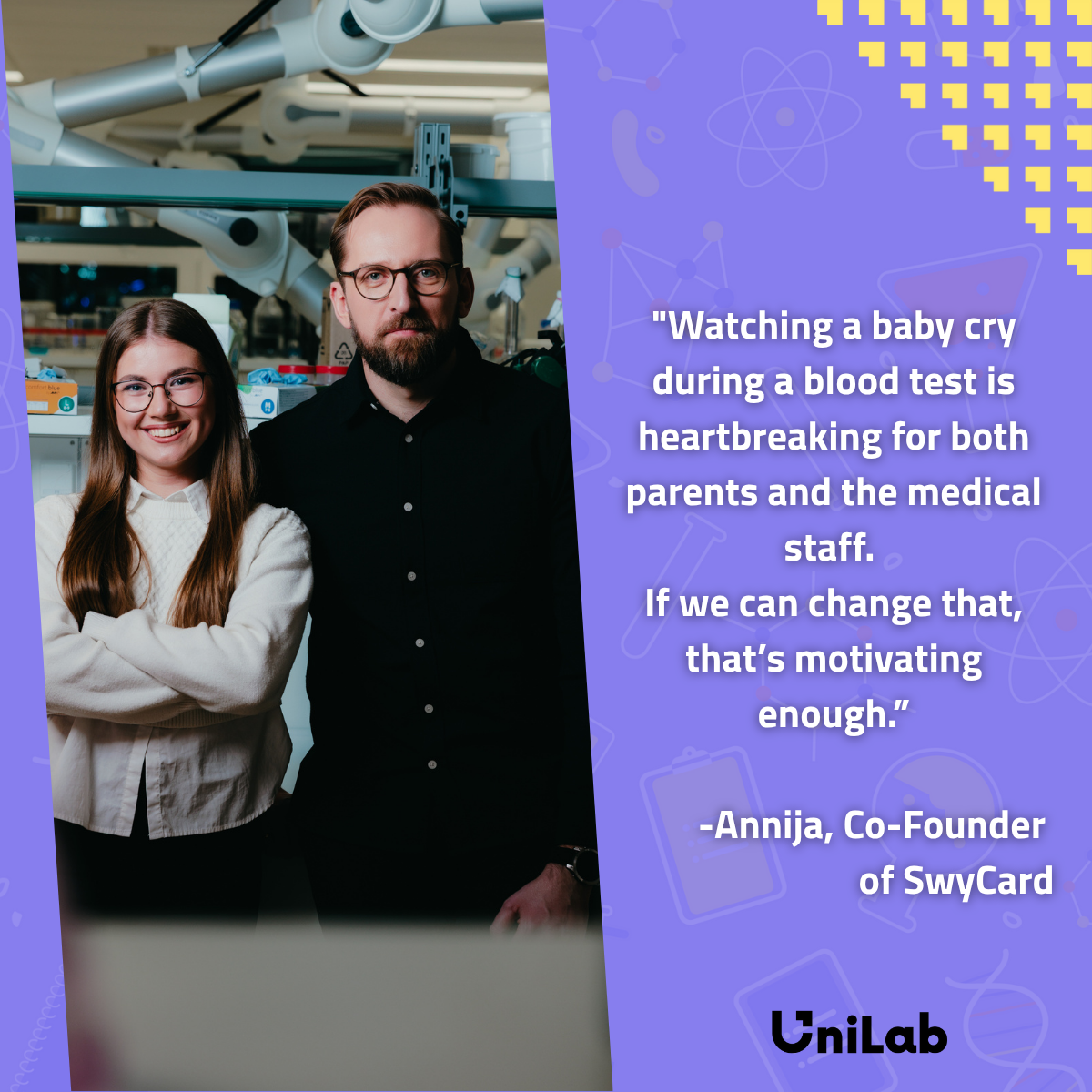From Lab to Startup
Annija Vaska is currently a Master’s student in Materials Science and Nanotechnology at Riga Technical University. She’s also one of the team member behind SwyCard—a deep tech startup reinventing clinical testing using sweat samples. Along with her team which consist of a biomarker researcher, clinicians, data scientist and business developer - Annija is developing an alternative for blood testing that could revolutionize diagnostics, starting with one of the most vulnerable groups: newborns.
Annija Vaska is currently a Master’s student in Materials Science and Nanotechnology at Riga Technical University. She’s also one of the team member behind SwyCard—a deep tech startup reinventing clinical testing using sweat samples. Along with her team which consist of a biomarker researcher, clinicians, data scientist and business developer - Annija is developing an alternative for blood testing that could revolutionize diagnostics, starting with one of the most vulnerable groups: newborns.
"For newborns, taking blood samples is painful and complicated. We’re creating a simpler, non-invasive method using sweat, making it easier for labs and painless for infants."
They are currently researching which markers can be reliably detected via sweat and designing a simple, card-based sample collection method that could be mailed to labs for analysis.

Joining UniLab
Annija’s startup journey began in 2023 during her final year of a Bachelor’s in Chemistry and Chemical Technology. While working on a research project at RTU’s Institute of Biomaterials and Bioengineering, she and her supervisor realized that the idea had commercialization potential - but lacked the business know-how.
"We found out about UniLab through our university network. At the time, I had no business background, and neither did my supervisor. UniLab became the bridge.”
The 5-month accelerator turned out to be more than expected. “It was a well-structured program that gave us a systematic view of how science can turn into something real.”
Annija highlights two parts of the program that shaped her path: learning from field experts across various industries, and developing soft skills - especially pitching.
“In the beginning, I had no experience presenting. I remember how every pitch slide needed changes. But by the end, I could pitch in front of an audience and actually feel the growth.”
Annija highlights two parts of the program that shaped her path: learning from field experts across various industries, and developing soft skills - especially pitching.
“In the beginning, I had no experience presenting. I remember how every pitch slide needed changes. But by the end, I could pitch in front of an audience and actually feel the growth.”

The Decision That Changed Everything
Looking back, Annija believes that joining UniLab was the turning point.
“Scientists have tons of ideas, but they rarely get realized. I had doubts in the beginning - whether I could balance everything, whether I’d even understand it. But after the first UniLab session, I knew: this is exactly what we needed.”
She appreciated that the program not only offered structured learning but also pushed her to keep working on the idea instead of letting it drift.
But most of all, she learned that big progress often comes from many small decisions. “It’s not about one big moment - it’s about making continuous adjustments.”
But most of all, she learned that big progress often comes from many small decisions. “It’s not about one big moment - it’s about making continuous adjustments.”
Startups Are Built in Iterations
Post-UniLab, SwyCard is still evolving. The team realized that launching a physical product involves many technical and regulatory challenges, so they shifted focus.
“Right now, we’re working on validating which clinical markers can be replaced by sweat testing, as well as building a database. Before entering the market, we need to understand the full scope and limitations of our tech.”
She credits UniLab for helping the team pivot early on. “We had to map the market and define our audience. It made us question our assumptions - and thank goodness we did.”
“Before, I thought that if I have an idea, I'll just go and do it - why do I have to write and make any mind maps, why do I have to define something?”
What seemed like “just writing down ideas” at first turned out to be crucial. “Now I understand - it helps to solve the right problem the right way.”

Challenges of Deep Tech
Annija admits that the biggest struggle was understanding the business side.
“At first, it feels like business should be easy. But there’s so much more underneath - vocabulary, frameworks, everything was new. UniLab helped me navigate it.”
So much so, she’s now pursuing a business minor alongside her Master's in science.
Another unexpected challenge was communication: “As a scientist, you think you can just explain your work. But people won’t get it unless you translate it into something relatable. Working in interdisciplinary teams taught me how important this is.”
Another unexpected challenge was communication: “As a scientist, you think you can just explain your work. But people won’t get it unless you translate it into something relatable. Working in interdisciplinary teams taught me how important this is.”

Lessons Learned
Annija doesn’t shy away from the hard moments. “Yes, I’ve wanted to quit. It’s so tempting to just get a 9-to-5, go home and not think about anything. But that’s not the most rewarding path for me.”
Even if this idea doesn’t succeed, she says, the experience is invaluable. “If not this, then the second idea, third, fourth, or the one after that will work out. It all adds up.”
At its core, SwyCard is deeply personal. “I’ve always loved chemistry, but I was also fascinated by biology and medicine. This idea was born at the intersection of all three."
"Watching a baby cry during a blood test is heartbreaking for both parents and the medical staff. If we can change that, that’s motivating enough.”
Annija's Advice?
“Be open-minded. Things can go wrong, but that doesn’t mean they’re bad. Look for opportunities within the obstacles.”
